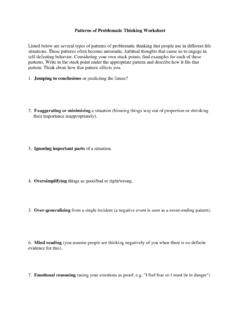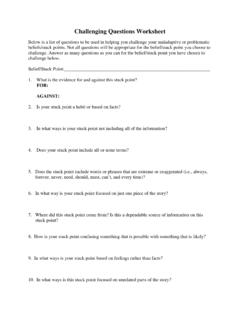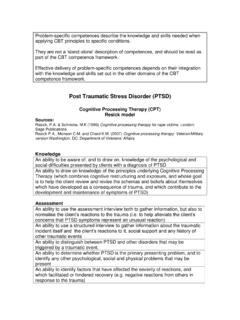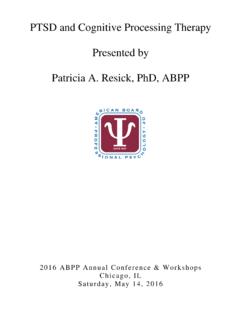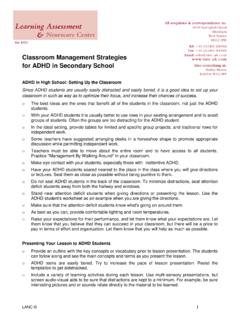Transcription of Challenging Beliefs Worksheet - Cognitive processing therapy
1 Challenging Beliefs Worksheet A. Situation B. Thought/Stuck Point D. Challenging Thoughts E. problematic patterns F. Alternative Thought(s) Describe the event, thought or belief leading to the unpleasant emotion(s). Write thought/stuck point related to Column A. Rate belief in each thought/stuck point below from 0-100% (How much do you believe this thought?) Use Challenging Questions to examine your automatic thought from Column B. Consider if the thought is balanced and factual or extreme. Use the patterns of problematic Thinking Worksheet to decide if this is one of your problematic patterns of thinking.
2 What else can I say instead of Column B? How else can I interpret the event instead of Column B? Rate belief in alternative thought(s) from 0-100% C. Emotion(s) Specify sad, angry, etc., and rate how strongly you feel each emotion from 0-100% Evidence For? Evidence Against? Habit or fact? Not including all information? All or none? Extreme or exaggerated? Focused on just one piece? Source dependable? Confusing possible with likely? Based on feelings or facts? Focused on unrelated parts?
3 Jumping to conclusions: Exaggerating or minimizing: Ignoring important parts: Oversimplifying: Over-generalizing: Mind reading: Emotional reasoning: G. Re-rate Old Thought/Stuck Point Re-rate how much you now believe the thought/stuck point in Column B from 0-100% H. Emotion(s) Now what do you feel? 0-100%
